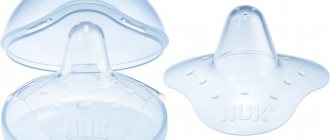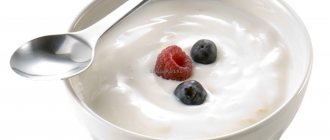Treatment tactics for breastfeeding
The body is weakened during lactation, so lack of rest, dehydration, intoxication and infection can lead to very serious complications and consequences. Therefore, treatment of acute respiratory infections during breastfeeding should be carried out with strict adherence to the recommendations that are usually prescribed to patients: rest, plenty of fluids, fresh air.
First of all, it is necessary to maintain bed rest and devote more time to sleep. You should stay in bed even if there are no pronounced symptoms or fever. Rest is necessary for the body at the very beginning of the disease, when it mobilizes forces to fight the infection.
The room in which the infected person is located should also be well ventilated. A humid, hot atmosphere and stagnant air are excellent conditions for the proliferation of pathogenic bacteria. And cool, fresh air will not harm either the woman or the child.
Due to the development of infection, many toxins are formed in the body, which must be eliminated naturally. You need to drink more: compotes, fresh juices from vegetables or fruits, tea. If the child does not have a tendency to allergic reactions, then it is permissible to brew herbal teas: mint, chamomile, calendula.
How to treat a cold for a nursing mother?
A loving and concerned husband will bring any medicine from the pharmacy, as long as it helps the mother of his baby recover. However, you should be extremely careful, since the medicine can harm both mother and child. It should be remembered that the use of medications for nursing mothers is carried out only under the supervision of a specialist.
However, a cold can also be cured using folk methods, which have saved mothers in many situations. The first rule of any cold is to drink plenty of hot liquids. Mom should know that this rule applies even when breastfeeding. In this case, you can treat with hot black tea with lemon or linden tea with honey, only if the child does not have an allergic reaction to it. Rosehip infusion is useful. You should not drink herbal infusions, as they can cause allergies in the baby or affect lactation. If mom has a sore throat, then it can be treated by gargling with calendula tincture or chamomile decoction. You can also use the usual rinsing method: soda and salt. If you have a runny nose, you can eat garlic and breathe in the steam from boiled potatoes.
If treatment has been delayed for more than 5 days, then you should consult a doctor, as this may be the beginning of a more serious illness.
If during treatment the mother feels that she has a temperature, then it should be measured on the bend of the elbow or knee, since the temperature in the mother’s armpit is higher. It should be remembered that temperature is a sign that the body is actively fighting the disease. If it is below 38.5, then there is no need to knock it down. It is recommended to allow the immune system to fight the disease on its own.
Antiviral drugs
When treating ARVI in a nursing mother, Ribovirin, as well as Arbidol and Remantadine should not be used. Anaferon and Aflubin, as well as Oscillococcinum, should be used with caution - they can provoke allergies in children and reduce lactation.
It has been established that drugs based on human recombinant interferon alpha are safe and effective for lactating women. Therefore, it is permissible to use Grippferon or Viferon. However, they can be used on the first day of disease development.
ethnoscience
Undoubtedly, it is much easier to take medications for colds while breastfeeding than to be treated with folk remedies.
However, traditional medicine is much less dangerous and more effective. The only drawback with this treatment is possible allergic manifestations in both mother and baby. If a nursing mother has a cold, then tea with the addition of honey, raspberries or lemon can replenish her strength and cope with the disease at its early stage. Before breastfeeding mothers take this tea, it is necessary to make sure that these products are well tolerated by newborns.
- Inhalations using boiled potatoes are considered the safest cough remedy. You need to boil the potatoes directly in their skins, mash them a little and add ordinary baking soda. Then you need to take a large towel and, covering your head with it, breathe over the hot potato broth for 15 minutes. To cure a cough, you should not limit yourself to potatoes. It is also good to use a decoction of birch leaves or essential oils for inhalation. For example, eucalyptus is considered an excellent folk remedy.
- Another remedy that cures cough is chokeberry juice with honey. Radish is an excellent natural antibiotic. It must be thoroughly washed, the pulp carefully removed from it and filled with liquid honey. Let it brew for about 12 hours. Take the finished product 3 or 4 times daily, one tablespoon at a time.
- Gargles using a decoction of calendula or chamomile help get rid of sore throats. You can gargle with a solution of sea salt, and it is also good for rinsing the nasal passages.
- You can cope with a runny nose by using aloe juice, which can be diluted with a small amount of honey.
- To treat a runny nose, garlic is also used, from which you need to make drops. Chop a few cloves of garlic and let them steep in vegetable oil. This remedy is an excellent prevention of colds during epidemics. But experts do not recommend eating spicy foods during the lactation period.
- The use of foot baths is also effective for the treatment of colds. Mustard powder must be added to the water used for baths. The procedure is usually performed before going to bed. Afterwards, you need to put on woolen socks and wrap your feet in a warm blanket.
- To reduce the temperature and improve the general condition of the body, a nursing mother with a cold must follow a plentiful drinking regimen. Water or tea can be used as a drink. But it’s better to replace them with healing infusions, for which you can take chamomile, plantain, raspberry or currant leaves. You can brew rose hips in a thermos.
- Rubbing the body with a weakly concentrated vinegar solution is also an excellent way to improve well-being.
Healers offer women to perform inhalations. Breast milk into the nose for a runny nose has also long been used to eliminate the symptoms of the disease. Eucalyptus, pine buds and oregano will also help alleviate the condition. Additionally, it is recommended to instill menthol oil into the nose. You can alleviate the situation with just two drops per day. You can also place bags of salt that have been preheated on your nose.
If you have a runny nose, you can continue breastfeeding
In folk medicine, ordinary onions are used against a runny nose. It is pre-crushed and sprinkled with sunflower oil. This substance must be thoroughly smeared into the nasal sinuses.
Please note that home methods only clear the nasal passages and temporarily relieve congestion, but do not eliminate the cause of the runny nose. The most common methods of folk treatment include instillation of chamomile and aloe juice into the nose, as well as rinsing with water and salt.
We suggest you read: Is it possible for pregnant women to warm their nose with salt?
Rinse the nose with salt water 4-6 times a day using a syringe or a small kettle. To prepare the solution, mix one teaspoon of salt with a liter of water. A nursing mother should use the syringe very carefully and not exceed the permissible volume of salt water, otherwise it will pass into breast milk.
Aloe juice is squeezed from one of the lower leaves of the plant and diluted with water in a ratio of 1 to 5 (one part of juice is five parts of water). The product is instilled into the nose, 3-4 drops two to three times a day. The juice of these plants moisturizes the nasal passages and relieves swelling. But keep in mind that the solution only has a beneficial effect within 24 hours of receipt.
Chamomile infusion is prepared from one teaspoon of dried flowers, which is poured with a glass of boiling water and left under the lid for one hour. You need to instill 3-4 drops three to four times a day. By the way, in addition to chamomile, you can use coltsfoot, thyme and string.
Against runny nose
Vasoconstrictor nasal drops have a local effect and are therefore safe for the child. It is acceptable to use products based on naphazoline - Naphthyzin or Sanorin, but they have a short shelf life.
Drops based on xylometazoline are effective for up to 10 hours. These include Galazolin, Otrivin and Ximilin.
Oxymetazoline-based products last up to 11 hours. These are drugs such as Noxprey and Nazol, Nazivin.
You can use vasoconstrictor drugs for no more than 5 days, otherwise they will become addictive.
Fighting germs
Germs can be completely eliminated only through the use of medications. The effect can be achieved even with the help of herbal ingredients. If you have a runny nose, breast milk will remain of high quality if you instill Pinosol in your nose. Its ingredients are completely natural, so use is allowed even immediately after childbirth. Breastfeeding still leaves a risk of developing allergies, so the baby's reaction should be constantly monitored.
It is not allowed to use essential oils of tea tree, anise or cumin for treatment. Children often develop allergies to these ingredients. Complications arise even after inhalation.
Inhalation with onions and garlic should also be avoided. These components are too aggressive and can lead to irritation of the nasal mucosa. Their effect minimizes mucus production. As a result, the healing process is delayed.
We suggest you read: Nursing mothers can use vegetable oil
Sore throat from cough
Nursing mothers should treat sore throats with topical antiseptics. It is advisable to rinse using:
- hexoral;
- saline solution;
- iodinol;
- chlorhesidine.
Strepsils or Sebidin tablets help temporarily reduce pain. You can use Chlorophyllipt, Kameton or Camphomen sprays.
During lactation, it is permissible to use expectorants based on licorice or ivy, marshmallow or thyme. They are produced in the form of tablets or syrups.
Is it possible to breastfeed if you have a cold?
“My daughter is three months old, I am breastfeeding. Thanks to this, I don’t have the problems faced by mothers who were forced to switch their babies to formula milk. My baby is gaining weight well, has no allergies, and the savings on the family budget are noticeable: food for the baby is always with me. But it’s worrying that, amid the weather changes, many around began to get sick. What should I do if I catch some kind of virus or cold? Do I need to continue breastfeeding in this case?”
“There is no better food for a child than mother’s milk, especially during seasonal viruses,” says Lyudmila Tutchenko, head of the Center for Lactation and Breastfeeding. “After all, mother’s milk, in addition to vitamins, microelements, components important for the growth and development of the child, also contains antibodies that protect against all kinds of infections. Including those that provoke acute respiratory diseases. Therefore, experts, even if the mother shows signs of a mild cold (for example, a runny nose, hoarseness or irritation in the throat), do not recommend that she give up breastfeeding.
Of course, you need to wear a protective mask and not take it off while you are in contact with the baby, and often replace it with a clean one. Place crushed garlic in the room where the child is always present: phytoncides neutralize viruses. Ventilate rooms more often. If you have a low temperature, you can limit yourself to herbal antipyretics (linden, raspberry tea), and when taking medications (including homeopathic ones), consult your doctor, since many drugs pass into breast milk and not all are harmless to children.
Be careful when consuming honey. It is very useful for colds and for their prevention, however, it can provoke an allergy in a baby, like any bee products (propolis, bee bread, etc.). And when choosing nasal drops, cough syrup or sore throat tablets, read the instructions carefully. It should indicate whether this drug can be taken by breastfeeding mothers. Choose only medications that are safe for your child.
And even if you have to stop breastfeeding (this can happen if the mother has been prescribed certain antibiotics or other drugs that pass into milk and which can be toxic to the baby), then take this as a temporary ban. In this case, you need to express milk from your breasts several times a day and at night to maintain lactation. As soon as the disease subsides and you complete the course of treatment, you can feed the baby with your own milk again.
And in the diet of a woman who is breastfeeding, there should be enough vegetables and fruits rich in vitamin C (it strengthens the immune system), from which useful substances pass into milk. And if you have a cold, at the first sign, use emergency prevention methods (it is useful to rinse your nose with saline solution several times a day, this makes it easier to “wash away” viruses if they have “grabbed”, gargle with herbal infusions - for example, chamomile, sage), drink vitamin teas.









